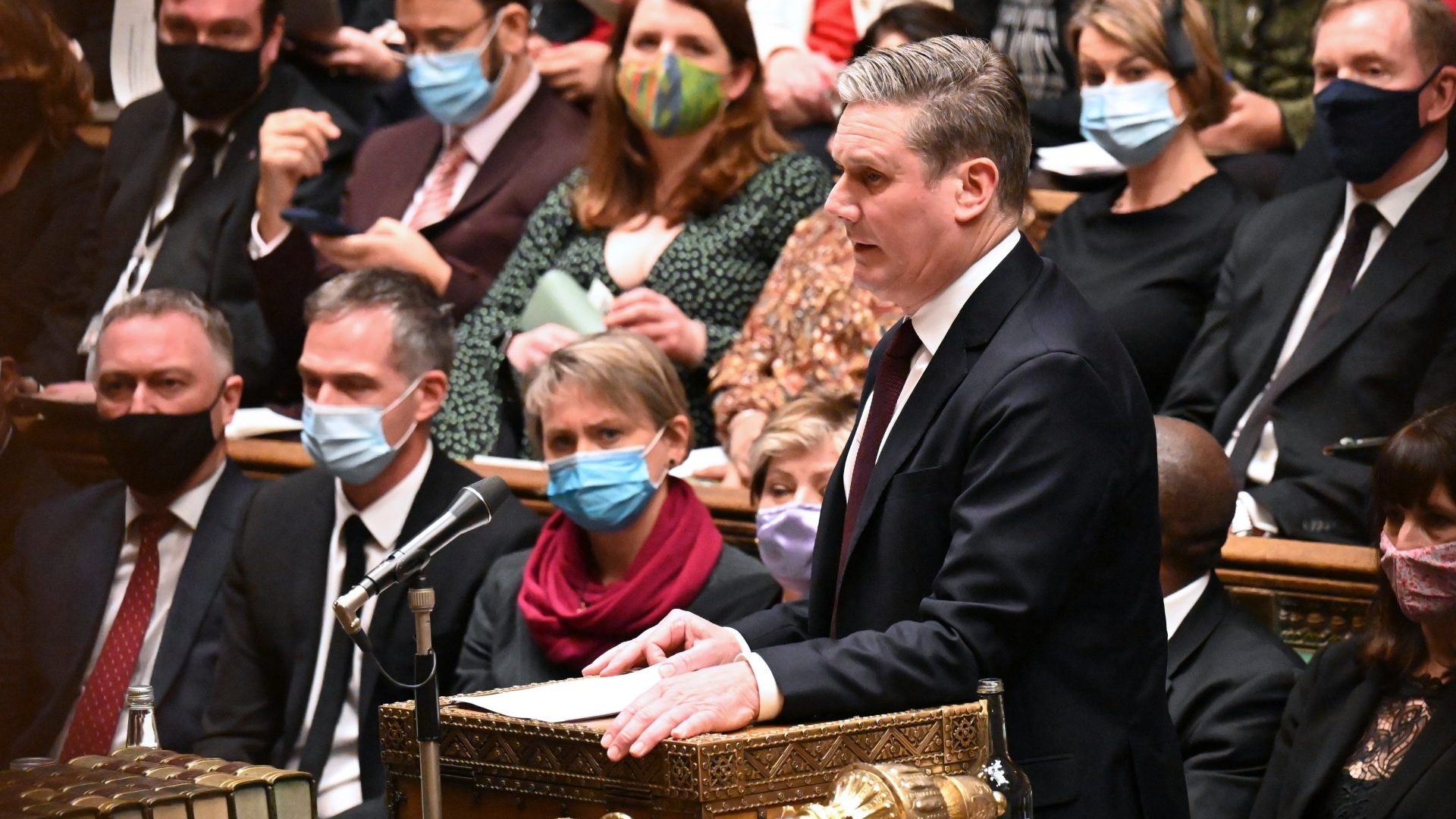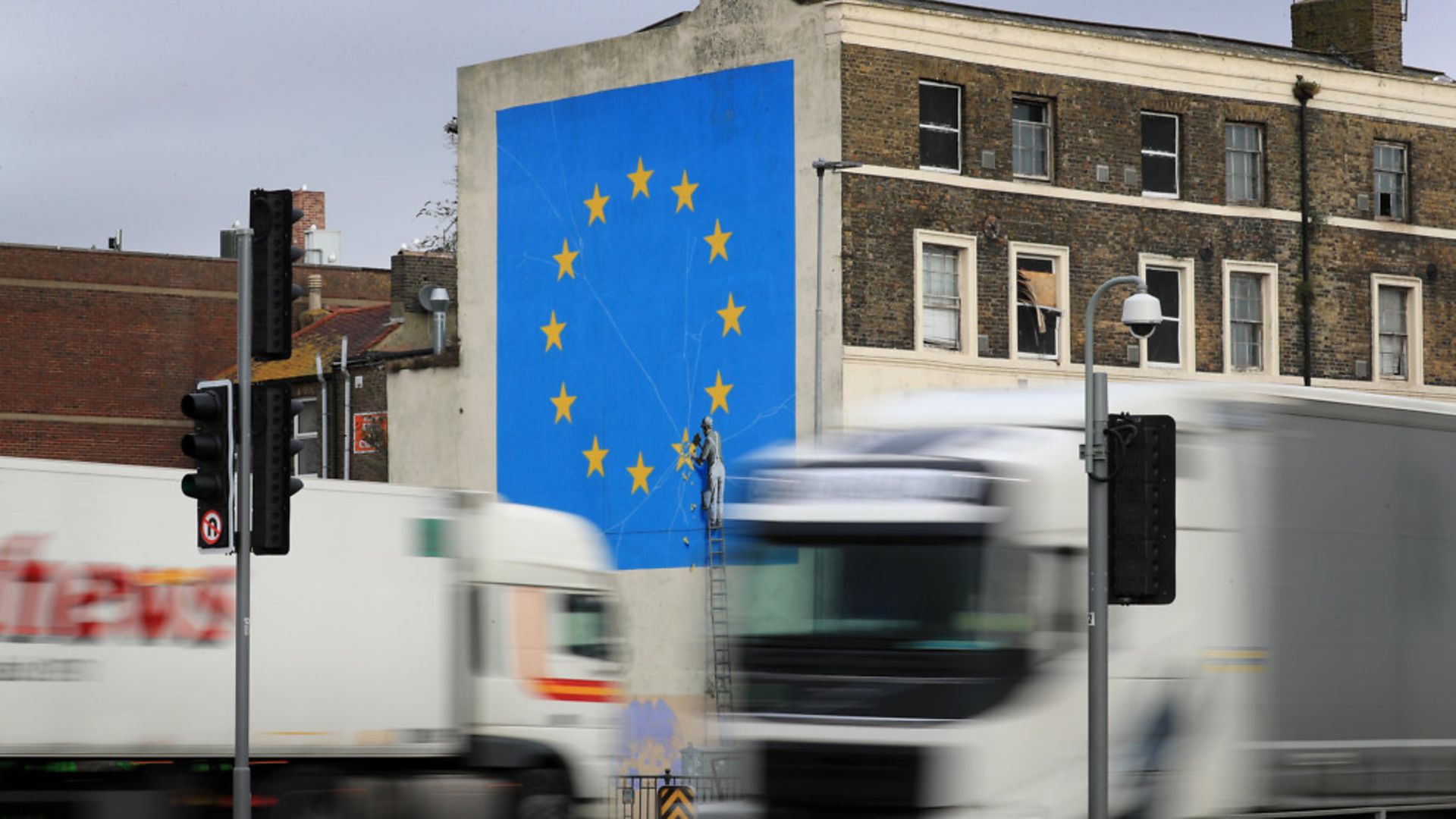The Sue Gray “update” – (report to come) – landed in my inbox as I walked towards St Margaret’s Church in Westminster, packed for the funeral of Labour MP Jack Dromey. His three children spoke beautifully of a wonderful father and supportive husband of their mum, Harriet Harman. In his eulogy, Gordon Brown was warm, funny, and captured Jack’s values and campaigning zeal. It was a reminder of politicians – the majority in my experience – committed to genuine public service.
I read the update as soon as the service was over and, even with the guts taken out it by the belated police intervention, even with the reality that Sue Gray is a civil servant ultimately answerable to Boris Johnson, it was utterly damning. It exposed not merely the scale of partying, the poor leadership inside No 10, and the Johnson booze culture, but crucially the inescapable fact that he had misled the Commons.
Two insights struck me immediately. First, that it was obvious he should resign. Second, that he wouldn’t. Even by his standards though, his handling of the report in the Commons was disgusting. One minute saying sorry, the next spewing abuse at Keir Starmer over a piece of fake news about Jimmy Savile.
The Labour leader gets a fair bit of flak for lacking Johnson-style charisma (sic) and oomph. But his denunciation of Johnson was word-and pitch-perfect, and the fact Tories heard it in silence underlined how hard it was hitting the mark.
Ultimately, they are the only people who can get rid of Johnson this side of an election. They would be wise to do so. If not, they might just discover that the country is more ready than they realise for a prime minister who is honest, decent, believes in the rule of law, and sees politics as being about serving the public, not looking after yourself.

Remember when we all trooped out on to the doorstep to clap for carers, enjoying a rare communal moment before heading back inside to resume our behind-closed-doors, working from home, box set-bingeing existence? Why, I got so carried away I even wrote a new bagpipe tune, and played it as our neighbour, nurse Sissy Bridge, came home from a shift at the Whittington one evening at 7pm.
The now-revealed lockdown social whirl in Downing Street has confirmed the sneaking suspicion I had at the time that to Boris Johnson, the whole thing was little more than a politically exploitable outbreak of national sentimentality. How else to explain the weekly sight of him and the new Mrs Johnson, clappy-clappy, smiley-smiley, and its hypocritical clash with their bacchanalian antics once they were out of sight behind the big door again?
It is so hard to resist cynicism, when Johnson & Co display such cynicism about us. But I had my broad faith in the significance of the weekly clap restored last week, in the most unlikely of places: Pentonville Prison. I visit from time to time because of my interest in mental health, and it was fascinating to talk to prisoners and staff alike about how they got through the worst of the pandemic.
For the prisoners, lockdown meant literally that, at least 23 hours a day in their cells. At one point, a third of the officers were off sick, two died from Covid early on, a chaplain died, too, and on one day, the entire prison had just 39 officers on duty to cover the 35 landings across seven wings.
So here is the faith-restoring bit. A man in for murder told me that when 7pm on Thursdays came around, he and other prisoners lined up inside their cells to join in the national clap-along. “We were clapping for the staff who came in,” he said. “Covid was terrifying at first. When visits and activities were stopped, and we noticed there were none of the people from outside bodies coming in, it was obvious how serious it was. We honestly thought there would be loads of deaths. We knew the screws were still coming in, risked getting it, taking it back to their families, and I think we saw them in a different light because of that.”
The prison governor, Ian Blakeman, granted every prisoner £5 phone credit so they could keep in touch with their families. Facilities were arranged for Zoom calls. The governor put himself up for “question time” sessions on a prison TV channel to explain what they were doing to deal with Covid. Only two prisoners died, and both had underlying health conditions.
An increase in restrictions usually leads to an increase in trouble. This time, the opposite seems to have happened. Assaults down. Self-harming down. Prisoner-to-prisoner co-operation and prisoner-to-officer co-operation up. In “normal” times, around 30 of the 1,100 prisoners get “nicked” for some kind of misconduct each day. It fell to two or three at the height of the crisis.
I’m sure most of us were thinking of nurses and doctors and care home staff, maybe police, fire and ambulance services, when we were clapping. But prison officers were on the frontline too, and the prisoners I spoke to seemed genuinely to appreciate it.
The desire of people to get back to some kind of normality was nowhere clearer than in the every-seat-taken Everyman cinema in Belsize Park for Kenneth Branagh’s new film, Belfast. Half a century since Bloody Sunday, a quarter of a century since the Good Friday Agreement, it is a timely and beautifully made account of life in a very different Northern Ireland in the 1960s, and seeing the story told through the eyes of a young boy, Buddy, played superbly by Jude Hill, is what gives it such emotional intensity.
A generation has grown up not knowing the level of fear and violence that led Branagh’s family to leave Belfast when he was a child. I hope today’s young generation goes to see it, to get a sense of what the current government seems willing to risk, in pursuit of Brexit ideology.
Of the many gaslighting narratives dreamed up by No 10, eagerly ventilated by Cabinet and media cheerleaders, “Johnson, builder of the alliance for Ukraine” is surely close to the top of the Fantasyland charts.
Fortunately, defence and intelligence relations with the US have broadly survived four years of Trump, but at the political level, it is hard to overstate the contempt in which Johnson is held by other leaders. He has weakened our relations with the US, and with the major powers in Europe, while Partygate has further strengthened his reputation globally as a narcissistic populist clown.
As for his tough talk about Russia, it might carry a little more weight if he hadn’t hawked himself out for tennis matches with oligarchs and their wives to raise funds for his party, sat on the report into Russian interference in our democracy, allowed London to become the No 1 magnet for dirty Russian money, and is now dragging his feet on progressing the economic crime bill designed to staunch its flow.
Actions have consequences, but so do inactions, and Putin is exploiting both.
To the British Library for an exhibition on Beethoven. I learned that his commission to write his Ninth Symphony earned him £50. Some of the documents on display, related to its composition, are now worth small fortunes. Among my favourites are those that display handwriting even more illegible than mine.
There is a rather moving pencil sketch that was drawn of him on his deathbed. And for those of us who cling to Ode To Joy as inspiration to keep alive the fight for Britain one day to regain its rightful place at the heart of Europe, there is the bonus of a first edition original of Schiller’s book in which the poem itself first appeared.




